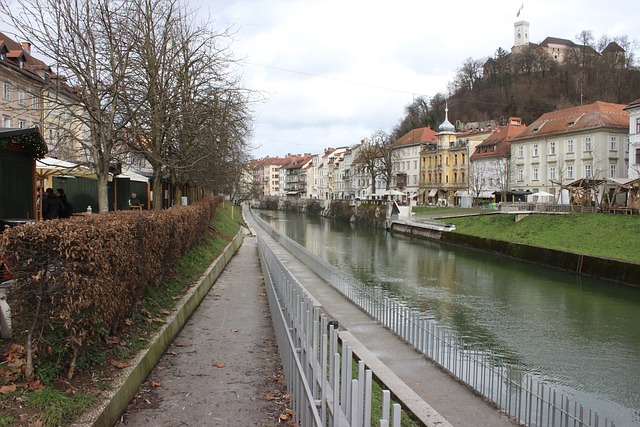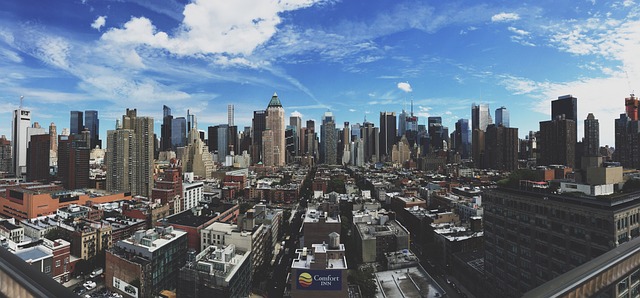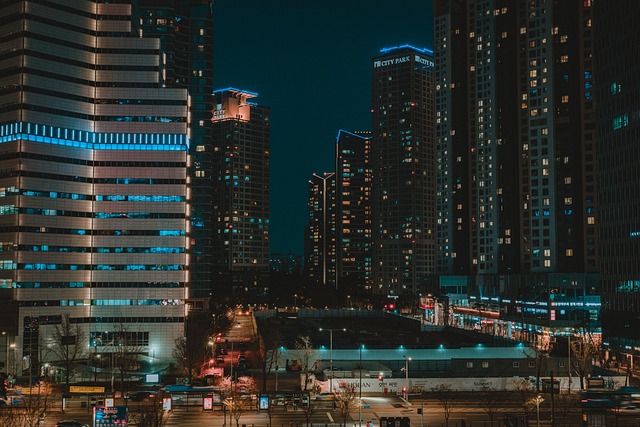Karachi's Nazimabad faces pressing waste management challenges due to its dense population and limited open spaces. Effective solutions involve source segregation, community engagement, and educational initiatives. By integrating innovative solutions and fostering collaboration between local authorities and residents, Nazimabad can become a model for sustainable waste management across Karachi, reducing environmental pollution, promoting recycling, and creating a cleaner, healthier urban future.
Karachi, as one of Pakistan’s bustling metropolises, faces unique challenges in waste management, particularly in areas like Nazimabad. This article delves into the current practices and explores potential solutions for a cleaner, more sustainable future. We examine the understanding of waste management in Nazimabad, its current state, and the challenges it encounters, from recycling rates to disposal methods. By highlighting these issues, we uncover opportunities for improvement and present sustainable solutions tailored to Karachi’s context.
- Understanding Waste Management in Karachi's Nazimabad Area
- Current State of Recycling and Disposal Practices
- Challenges and Opportunities for Improvement
- Sustainable Solutions for a Cleaner Nazimabad
Understanding Waste Management in Karachi's Nazimabad Area

In the bustling metropolis of Karachi, the Nazimabad area faces unique challenges when it comes to waste management. With a dense population and limited open spaces, efficient disposal and recycling systems are paramount for maintaining a healthy and sustainable environment. The primary focus here should be on segregation at the source, where residents play a crucial role in categorizing organic, recyclable, and hazardous waste.
Karachi’s Nazimabad, known for its vibrant community, requires an integrated approach. This involves community engagement, educational initiatives to promote responsible waste disposal, and the implementation of efficient collection systems. By adopting innovative solutions and fostering collaboration between local authorities and residents, Nazimabad can set an example for sustainable waste management practices within the larger Karachi urban landscape.
Current State of Recycling and Disposal Practices

In Karachi, the current state of recycling and disposal practices presents a mixed picture. While there are established waste management systems in place, their effectiveness varies across different areas of Nazimabad. Traditional methods, such as open dumping and burning of waste, still persist, leading to significant environmental pollution and health risks. However, there is a growing awareness about the importance of recycling and sustainable disposal among the local communities. Many residents are actively participating in community-led initiatives to collect and segregate recyclables, such as paper, plastic, and metal.
The city’s waste management authorities have also introduced several programs to promote recycling and reduce the amount of waste sent to landfills. These efforts include setting up recycling centers, organizing awareness campaigns, and encouraging the use of compostable materials. Despite these initiatives, challenges remain, including inadequate infrastructure, lack of consistent collection services, and limited space for recycling facilities in densely populated areas like Nazimabad. Overcoming these hurdles will be crucial for Karachi to move towards a more sustainable waste management future.
Challenges and Opportunities for Improvement

Despite its potential as a thriving urban area, Nazimabad, like many parts of Karachi, faces significant challenges in waste management. The rapid growth of the population has led to an increase in solid waste generation, causing strain on existing infrastructure. Unsanitary dumping sites and inadequate recycling mechanisms are common issues, leading to environmental pollution and health hazards for residents. However, these challenges also present opportunities for improvement.
Implementing innovative solutions like efficient waste collection systems, promoting community participation in recycling, and adopting advanced technologies for waste treatment can significantly enhance Nazimabad’s waste management scenario. The key lies in collaborative efforts between the local administration, community leaders, and environmental organizations to develop sustainable strategies that cater to the unique needs of the area, ensuring a cleaner and healthier future for all Karachians.
Sustainable Solutions for a Cleaner Nazimabad

In the bustling metropolis of Karachi, sustainable waste management is not just an environmental necessity but a key driver for a cleaner and healthier Nazimabad. Implementing eco-friendly practices can significantly reduce the city’s carbon footprint while enhancing the quality of life for its residents. One such solution lies in encouraging recycling initiatives; by promoting a culture where waste is seen as a resource, the community can play a vital role in reducing landfill contributions. This can be facilitated through dedicated collection points and public awareness campaigns that educate on proper waste segregation.
Moreover, sustainable energy generation from waste offers another game-changer. Through innovative technologies, organic waste can be transformed into renewable energy sources, reducing dependence on fossil fuels and mitigating climate change impacts. In Nazimabad, such initiatives could foster a greener environment, setting an example for other areas in Karachi to follow. These strategies not only contribute to environmental sustainability but also create opportunities for community engagement, ensuring a cleaner, more vibrant future for the city.
The community of Nazimabad in Karachi faces significant waste management challenges, as highlighted throughout this article. However, by adopting sustainable solutions and improving recycling practices, there is a promising path forward for a cleaner and healthier environment. Recognizing the potential for positive change, the implementation of innovative waste management strategies can transform Nazimabad into a model for efficient and eco-conscious city living, setting an example for other areas in Karachi and beyond.





Leave a Reply
You must be logged in to post a comment.